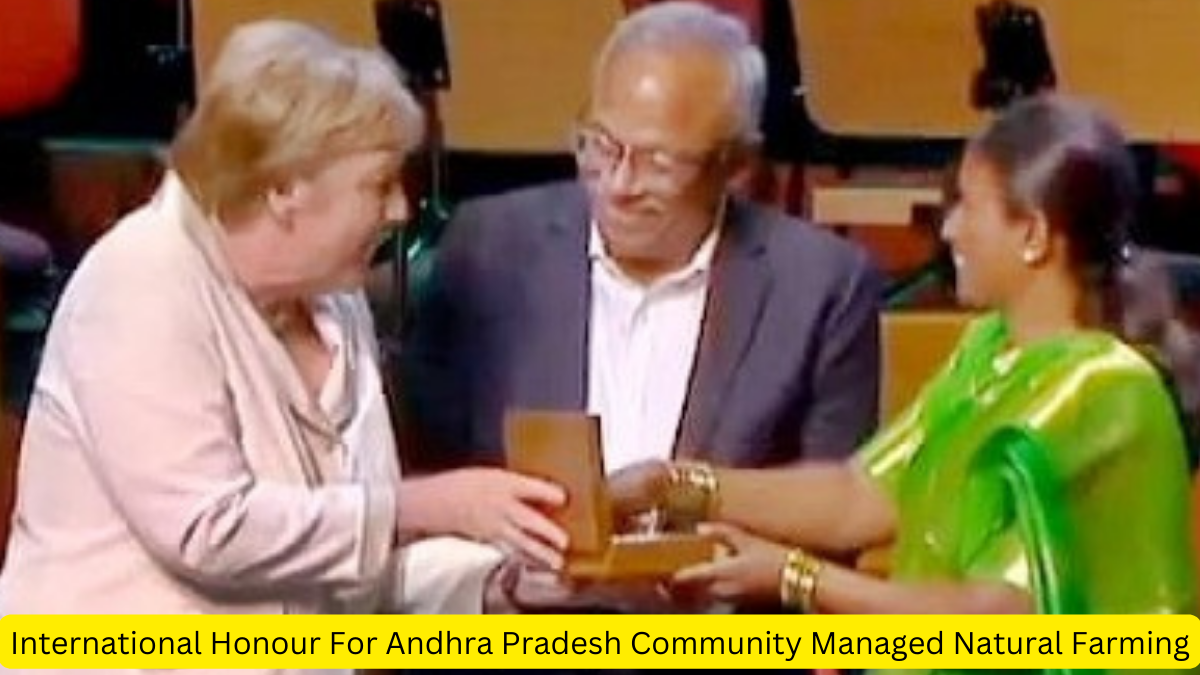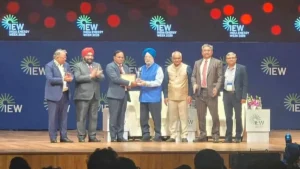The Andhra Pradesh Community Managed Natural Farming (APCNF) program, led by the Government of Andhra Pradesh, has been awarded the prestigious Gulbenkian Prize for Humanity 2024. The announcement was made by Dr. Angela Merkel, chair of the Jury and former Federal Chancellor of Germany, during a ceremony in Lisbon, Portugal on July 11th. The event was attended by dignitaries including the President of Portugal and other government officials, alongside experts from around the world.
EUR1 million prize
APCNF shares the EUR1 million prize with Dr. Rattan Lal, a renowned soil scientist from the USA, and SEKEM, an Egyptian network promoting biodynamic farming. The Jury and the Calouste Gulbenkian Foundation recognized their collaborative efforts in advancing sustainable agriculture through both scientific research and practical applications. The prize money will support scaling their initiatives and fostering further sustainable agriculture projects globally.
State-wide Program
The Andhra Pradesh Community Managed Natural Farming (APCNF), a state-wide program of the Government of Andhra Pradesh, has been recognized for its significant contributions to global food security, climate resilience, and ecosystem protection. This initiative specifically supports smallholder farmers, with a focus on empowering predominantly women farmers.
Prize for Humanity
The independent jury of the Prize for Humanity, chaired by Dr. Angela Merkel (former Chancellor of Germany), has chosen the 2024 winners from over 181 nominations worldwide. This year saw the highest number of nominations received by the Foundation, spanning more geographies than ever before. The 2024 Prize emphasizes the interconnected nature of climate-related challenges, highlighting how they lead to systemic crises.
Andhra Pradesh Community Managed Natural Farming (APCNF) program
Climate change is worsening biodiversity loss, extreme weather events, and resource degradation, which in turn disrupt global food systems and human health. Additionally, agriculture plays a significant role in climate change through carbon emissions, land and water degradation, and biodiversity loss. The Andhra Pradesh Community Managed Natural Farming (APCNF) programme was launched in 2016 by the Government of Andhra Pradesh to support smallholder farmers in transitioning from chemically intensive agriculture to natural farming.
World’s largest agroecology program
This transition includes practices such as using organic residues, minimizing tillage to improve soil health, reintroducing indigenous seeds, and diversifying crops, including trees. APCNF is implemented by the Rythu Sadhikara Samstha (RySS), also known as the Farmers Empowerment Corporation, a non-profit entity established by the Government of Andhra Pradesh. It is recognized as the world’s largest agroecology programme in terms of the number of practicing farmers. Over a million smallholder farmers are enrolled in the APCNF programme, practicing natural farming across 500,000 hectares in Andhra Pradesh.
Environmental and social benefits
The programme offers farmers reduced costs, reduced risks, stable yields, improved incomes, and health benefits from the very first season of transition. It generates significant environmental and social benefits, including greater soil carbon sequestration, reversing land degradation, reducing soil temperatures, and increasing biodiversity.




 What Is Bhavya Bharat Bhushan Award? Sad...
What Is Bhavya Bharat Bhushan Award? Sad...
 Oil India Limited Wins FIPI Award 2025
Oil India Limited Wins FIPI Award 2025
 From Puducherry to Washington DC! Doctor...
From Puducherry to Washington DC! Doctor...








